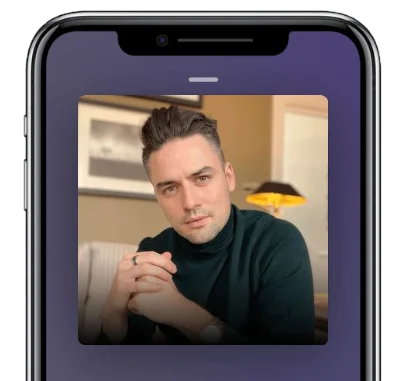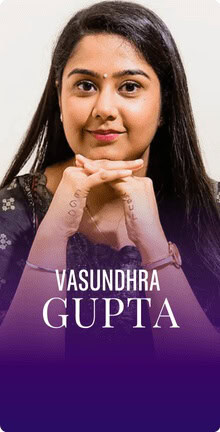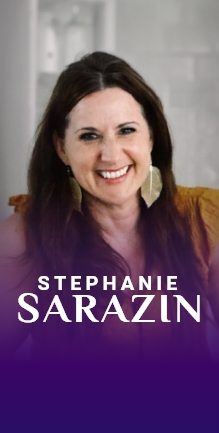In this Episode
- [02:00]Addison shares his journey to M.E.T.A.L and the epiphanies, synchronicities, and insights he gained after joining the mastermind.
- [02:50]Stephan asks Addison to tell him his story and experiences that compelled him to deal with grief. Addison also speaks about the present moment and what makes sense about it.
- [11:44]Stephan and Addison talk about near-death experiences and angel bumps.
- [17:36]What is the concept of soul contracts, and how it works?
- [20:25]How does the concept of a dumb terminal relate to our experiences?
- [25:38]Addison describes a time when he made a connection with someone. Additionally, he shares his spiritual inheritance with his father.
- [35:01]How does the Tethr application help other people?
- [46:38]Can Addison receive communication from his departed loved ones?
Addison, it’s so great to have you on the show.
Thank you so much for having me. It’s an honor to be here.
We know each other from a mastermind called M.E.T.A.L. Media, Entertainment, Technology, and Artistic Leaders. What brought you into M.E.T.A.L? If you could share any insights, epiphanies, or synchronicities that happened because you were in M.E.T.A.L.
Yeah, yeah. That time was the height of the pandemic. There were lockdowns when I joined. My knowledge of M.E.T.A.L was all within the digital world, which started to allow people to connect.
A couple of M.E.T.A.L members had noticed everything I was doing in the men’s mental health movement. They suggested it. I came one Saturday and got to meet with a bunch of people in the breakout rooms and hear the guests talk. That led to many more Saturdays, friendships, connections, working with people and co-mentoring. It was a cool experience. This is proof of that, right?
Right. We’re having this conversation today because of it. There are so many kinds of magic moments that happen in different masterminds where it’s clear to me that this is somebody I need to have on my podcast or somebody who’s going to become a strategic partner or strategic alliance or whatever. They light up in some way, not necessarily physically but metaphorically, and you are one of them.
When your book came out, I knew I needed to talk to you about grief on the show. There aren’t many episodes where we talk about grief, so it’s an important topic. It’s one that people shy away from unless they’re in the midst of it. They don’t feel a need for it, but death is an ever-present part of life, and that’s what makes life just what it is. So it’s something that is precious.

If we don’t look at that, we miss something that is a critical part of life. Some folks have a coin in their pocket everywhere they go. It’s something like memento mori, essentially reminding them that they’re going to die, that they’re mortal. At least their physical body is mortal. I don’t know if that appeals to you to remember or if you were just thrust into this situation of needing to deal with grief because of circumstances. I’d like to hear more about your story.
For those listening, my personal story, I guess, my coin is experiential in a sense. It’s something that I can never really shed or forget at home. It’s interesting because I found myself between 19 and 29, just to the left of death, three times. First, I lost my younger brother to an inoperable brain tumor at 19. Then a few years later, I found my father after his suicide.
A few years after, going out into the world trying to fix what had happened, looking for how do I fix grief. How do I fix mental health? Finally, at 27 in LA, I thought I did it. I thought I was going to move on, it was checked, and it would be fine.
I had downloaded a meditation app and been through enough therapy, so it should be an over kind of idea. I was out celebrating one night in Los Angeles. I felt like I was back, which was kind of up from here. On the way home one evening, I was in a bad accident that killed a dear friend of mine and left me relearning to walk with a brain injury, having to make sense of the world again.
It’s odd. Some say, “You’re the unluckiest guy I’ve ever met.” Some people look at it and say, “Well, you were always still here, so maybe you’re the luckiest guy I’ve ever met.”
Experiencing death and then grief in such complex and comparative ways allows me to be this 33-year-old who writes a grief book. Most people are like, “What do you know about grief?” They’re kind of taken back. But as we get to know each other, we realize that everybody’s stories are a little different. And mine, having gratitude, awe, and so much love in there, does have some pretty difficult grief processes that I’ve been honoring.
You said, making sense of the world. I’d like to hear if you’ve made sense of the world. What does that mean exactly if we were to unpack that? What makes sense and what doesn’t?
That is a good question. I’ve never been asked like that. That is one of those things that’s like a clip. I always say those words, and it’s so interesting. Nobody has ever plucked them out and asked me what exactly that means. Where we got to after this accident, I realized my whole life had been running on one operating system. And now, I am using a different system. It’s like I was trying to run Mac on Windows, and it will not work.
Grief isn’t something you fix. It’s something you honor.
Everything that I believed and everything I thought about the world did shift with that third big event. What I came to realize, and the reason I wanted to write the book, was that this isn’t something you fix. It’s something you honor. Honoring it is getting up every day and checking in with yourself based on your relationship with this grief, the people you’ve lost, what you need to do in your day to adapt, and using different parts of your toolkit to get through the day.
I had to surrender and let go. I had a suicidal moment after the accident, and I was almost unable to make it here. But I realized I had to let go of all the things I thought would serve me that were not, these ideas of how the world worked, and someone who thought they could make sense of it.
It’s funny because that’s when I thought it could make sense of everything. It was something I could achieve, fix, and move forward. So this is an interesting question because it was no longer trying to make sense of it in that way, and feeling okay and safe, and the like. There’s no way to know. We do just have the present moment.
Yeah. It’s something I learned recently. I interviewed this popular YouTuber, fairly popular and a psychic. His name is Sam The Illusionist. In one of his channelings, I watched this video of him channeling, and it was very profound. He said that the present moment is not what we’re currently experiencing. What we’re experiencing through our five senses is actually in the past. It has already happened. The way that we get into the present moment is by shutting down our five senses.
Is that in seconds?
I didn’t get the details around that. The thing about time is time doesn’t exist. It’s an illusion. Past, present, and future all happen simultaneously. It’s a lot to wrap one’s head around. But this little nuance, this distinction I learned recently about the present moment not being what we think it is when we are all present, listening to the birds chirping, feeling our feet on the grass, and everything, that’s not the present moment. That’s an echo. It really happened.
You explain that to me as a great metaphor.
If you want to experience the present moment, you have to shut out the five senses. You have to go within and quiet everything, and then it’s the present moment. Joe Dispenza talks about meditating in this place, where you’re in the unified field, experiencing yourself as nobody in no time, nowhere, and nothing. That’s the present moment.
That really makes sense.
Yeah. What a powerful distinction to think, “Oh, I’m getting present now because I’m feeling my feelings. I’m taking in deeply what my five senses are giving me.” But, no, that’s all an echo.
Yeah, it’s a beautiful metaphor for anyone listening who may hasn’t had a close brush with grief. That’s a lot of what it feels like, something that you always thought you knew or a concept you thought you had figured out, and then you share that I have to rethink something that I say and do all the time. So it’s a good metaphor for that sort of system interruption that happens when you lose something meaningful.
Everyone has a different personal story. That's why we need to honor and sympathize with how others express gratitude, awe, love, and grief. Share on XYou’re like, “Wait, I thought I knew what this was.” It’s like, “No, the game has changed completely.” So I think it’s a great way for people coming to this not from a place of need, as you said, off the top and already grieving, but maybe just interested in it and how it affects those around them.
Did you have a near-death experience, an NDE, where you felt this connection to something more on the other side of the veil? Did something meaningful happen to you?
I have never personally had one. Yeah, no near-death experience. I have been what I believe to be very close to suicide. I could speak about that, the awareness around that, and that cloud I went into. But as far as my own near-death experience, no, I’ve just intimately witnessed it, which is rare, but not rare like people leaving this earth.
People I cared deeply about being right there when it happened or right before, right after—just kind of being in that space. Yeah, I’ve never personally had a near-death experience, though. I will knock on everything because my biography is already long enough.
Do you know anybody who’s had an NDE, and then they report back like, wow, this is so different from what I thought it was?
I’ve heard a few different people. One thing that comes to my mind is I got to get close to Kevin Hines when I was involved in the men’s mental health movement. He’s one of the few people that jumped off the Golden Gate Bridge and survived. Have you ever actually interviewed him? He has a fascinating story.
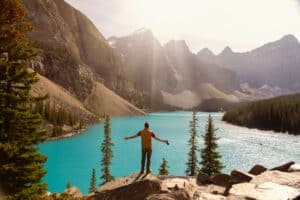
Oh, I want to. He’s on my list.
Yeah, I’d love to connect with you guys. He’s one of those few people who survived that jump. The way he said that, he had this immediate regret and then his experience in the water. It was just very moving to hear that story. I always think of that. I’ve thought about Kevin a lot, even in my struggles, just the fact that he was willing to share his experience. Other than that, no, not really.
I could share something about Kevin. I recently watched a short video about him. At the moment, you know, when you get these goosebumps, it goes like, whoa. You get this electric sort of feeling throughout your body. Some call it angel bumps as a confirmation from above that this is true or real.
When I heard the part of the story about the seal or a sea lion, one or the other, pushing him up from below. A seal kept him alive because he didn’t have the energy to keep his head above water for several minutes until he could be saved. I had the thought.
Even before I completed the thought of formulating it into a sentence in my head, I just had the thought. That was either an angel, essentially hijacking the seal’s body to do this miracle, or an animal instructed to do this. Either way, it’s the same thing. He delivered a miracle because it’s not your time.
Exactly. It speaks to the idea of how connected we are with everything. It’s like a message was sent out, and a living being showed up at the necessary moment. For me, that’s been the glue through all this grief. When that signal that I seem to be sending out without ever knowing, this becomes overwhelming, when the grief is too much.
There are people who always show up at the right moment. When you respond to someone’s needs, a connectedness comes up.
I call it magic, but it’s the same thing. That seal is all these people who always showed up at the right moment. It almost seems like it can’t be a coincidence. There’s that connectedness to responding to someone’s need like that.
I love that. I feel like I’ve had so many seals. I love that story. I’ve heard him tell it many times. He’s very good at telling it because even when I know the story, I still get like you said, goosebumps or angel bumps, and you’re just so moved by it. It’s a very interesting story.
Yeah. I’ve found that as my psychic abilities continue to develop, I can communicate with animals at a telepathic level. Wow, they have so much to say, and they have so much wisdom. Unfortunately, we don’t give animals nearly enough credit.
Yeah, I believe that too. I got my dog right after the accident. It is insane how aware he is of his purpose. He knew exactly why he was there and just the connectedness. He probably would have been a little more rambunctious if it were any other time. I had broken my hip at the time, and he would always curl around that exact hip and rest his head on that. So the knowing is just— oh, my little buddy.
How’s this for the wild? What if he had volunteered to be there for you through this experience before he even incarnated?
Is it possible? I believe that. I’d be down for that.
Yeah. There’s this concept called soul contracts. If you believe that we choose our parents, we choose our soulmates, best friends or business partners, and our children. We have this kind of vision or map of what our life will be like before we incarnate, what the lessons will be, and what the hardships and breakthroughs there will be.

You might have somebody in your life who is hard to take. Yet, they chose and agreed to be in your life to serve an essential purpose, giving you that contrast and the opportunity to grow, forgive, and love unconditionally. There are no accidents. There are no chance occurrences.
There’s nothing random that I’ve been shown. If you can find some solace or peace in the fact that you opted in for whatever challenges you’ve faced, and the people and the animals that rally around you to support you through this all opted in as well, it’s not so far-fetched.
It’s a beautiful thought. For me, the way that I’ve always been supported and surrounded by the community, I’m glad to feel like a lot of people opted in because a lot was going on when it was happening. That brings me peace. The next person might not, but I love that idea and that you were never alone with the idea of that that it started long ago.
Yeah. In the episode where I interviewed Vasundhra Gupta, we went deep into soul contracts. If that interests you or our listener is interested in digging deeper into that, I will check that episode out. Also, the article she wrote for her blog is called My Spiritual Shenanigans. The article is all about soul contracts. That’s how I ended up contacting her.
I was finding that article online, which again wasn’t an accident and knowing that she’s somebody I’m supposed to have on the show. Powerful.
I love that.
There’s a concept I want to share with you, and I want to get your take on it. If you think of us as kind of like dumb terminals, if you think back to earlier days of computing, where we were using dumb terminals to connect to supercomputers, and the supercomputer had all the answers and all the information, but the dumb terminal is how you connected to it. The dumb terminal didn’t have enough smarts to answer any questions. Still, it gave you the conduit, and if you think of ourselves in that scenario as the dumb terminal connecting to the unified field, to source, or to all that is—that supercomputer. Then people get into altered states of consciousness, doing plant medicine, breathwork, meditation, and so forth, getting connected to the place of nobody, nothing, no time, and nowhere. They’re just connected to the supercomputer. So I’m curious to hear if you have had any experiences where you felt plugged into that.
When I speak and write a lot, I refer to that as magic, an undefinable thing.
It’s the end of my day here in London. I should have thought harder before hopping on here that it would go deep and real and not just an easy book interview. But, yes, I have. When I speak and write a lot, I refer to that as magic, this undefinable thing.
I think I and many I’ve spoken to have gotten to speak to hundreds of people who have dealt with grief. It does question everything you believe, whether you started very religious, spiritual, or whatever. It’s not uncommon for many people to go through a chunk of time where they consider some almost like atheists and just kind of disconnect from everything.
I did have that. I had really bad PTSD after finding my father after his suicide. There was something in my being that had to shut down everything I had always felt deeply connected to because if the visions and the projections from the trauma were real, then that was real. So I had to get rid of everything just to know what was happening. It was just such a lonely, lonely time.
What has always inspired me is, you know when you’re watching a movie, listening to music, or at a theater with other people. There’s just this moment where you take this deep breath, and it’s like, wooh, whoever wrote that line, that lyric, or the way that music was played, the way that violinist is moving, they know what I know. We don’t have to talk about it, but I know I’m not alone. Isolating is what everybody can make, what I’ve been through sound.
I’ve always had this. That’s what I want to do when I grow up. I want to create opportunities for that gas to connect people without communicating. That’s because I was also very shy when I was young around a big outgoing family, but this idea of that connection. That’s when I feel connected on that level. When I’m connected to some sort of deep kindness or universal understanding, that goes unsaid. Those are the moments I live for.
Connecting to deep kindness or universal understanding are the moments I live for.
I have this thing, and you might call it telepathic. I can tap into other people’s sense of humor and not hear their thoughts, but I know exactly where they’re at. I know the real tickle spot of people’s sense of humor. So it’s been a great joy to admit the sadness I’ve experienced.
When I can connect to what’s funny, like talking and laughing until you cry, the person is gasping for air. Because of that, I am too, and the most plugged-in, alive, connected on earth that I get to feel. I almost source that out. I almost want to go to funerals where I know someone will laugh with me when we’re not supposed to. That is when I feel the most connected to this idea that everything is so serious. Everything our bodies and minds experience is so serious, but also, it’s just so much bigger than that.
It’s those moments of complete release like you say. In a sense, it’s the same as you said, taking the senses away. I also don’t have any of my senses when I’m laughing like that. You lose control of everything and are just in the visceral human connection. Yeah, that and when I witnessed deep kindness.
Can you give an example where you had that connection with somebody, and it was just awesome and hilarious?
Yeah. There are so many. It’s odd because it’s so particular. But my older sister is three years older than me, but people call us twins, and some call us evil twins because we can hear each other’s thoughts. So here we were, front and center, losing our brother and then our father in a tragic way. So everyone expects what grief looks like and how you deal with these things.
My sister and I, especially in private, spend a lot of our time. She won’t mind me sharing this, but hysterically laughing at the smallest or weirdest thing that we could both find funny. It’s just so odd the way that everything goes when you’re dealing with death. So to have those moments with my sister, I’m like, “Don’t you dare look at me. Don’t look at me. I know what you’re thinking. I know what you’re going to do.” It doesn’t matter if we’re in church or what you’re doing. It’s just okay. This is happening, and this laughing fit is going to occur.
You can see from the way that I light up that’s just where I tap into the deepest sense of connection. It makes sense that people see that as a twin thing because we don’t even have to talk for ourselves. We can tap right into what either would have said in the inappropriate situation and where it would have gone quickly. It’s this really beautiful thing.
Honor grief by recognizing it daily. Give yourself permission to feel the gamut of emotions in order to process through your grief. Share on XI feel really lucky that I get to have that with so many people. I love comedy. I always have. I went through The Groundlings school in LA, navigating grief. So I’m dealing with all this heavy stuff, but then I’m also doing full improv, showing off one-word suggestions and figuring out what works, what makes people laugh, and connecting with others and listening deeply.
I think it’s just like this thing I’m addicted to. It’s like I know the deepest sadness in my life, but let’s tap into your deepest joy or what’s going to get you going. It’s like my weird hobby, where people are like, “Get out of my head.” They’re like, “Oh, no, I have you now.” I’ll never be able to sit there doing anything serious again.
You get to a point where I don’t even have to say anything. I just look, and the person knows I know whatever they think. It’s magical because you’re just so deeply connected. I just love humor for that.
That’s awesome. To have that level of connection with somebody is beautiful. It’s more than just a parlor trick or fun or funny. It’s profound.
I agree.
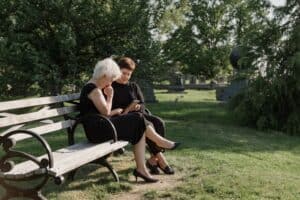
I’m curious to hear if you have had situations where you sense something beyond just like, oh, I get you, like you, we’re on the same wavelength or whatever. We’re plugged in and connected. Prove that you’re like, wow, this person is thinking about taking their own life. I better talk to them about why suicide is not the answer, or I need to intervene. I need to deliver a miracle right now. Have you had that happen?
Yeah, I’ve had it. I’ve witnessed it very intimately. When my brother was at the end of his life with a brain tumor, he had been palliative for a while. He had already stopped speaking. But when it came towards what we believed would be the end, the doctors that came by and the nurse said, “This is going to be a long week. So rest and come back. This kind of thing isn’t going to happen tonight.”
My mom’s connection to my brother was visceral. The night before he passed, and again, they had told us to rest and not to react, she had this whole episode, and she was just so sure. She just knew it was so, so soon. So we stayed up as late as we could.
We watched movies with my brother, and then we all went to bed. Then a couple of hours later, my mom’s best friend came in and woke me up and said, “Your mom thinks you should come in and say goodbye.” She’s really sure. It was this weird thing because I was going to college then.
My roommate’s mother was a nurse, and she had told me that once certain extremities go cold, there’s still probably 72 hours, so I had this idea of there being 72 hours, and it had been maybe 12 since she told me that. So I was nervous about a week full of going to the bedside to say goodbyes. It was a lot. But my mom was so sure.
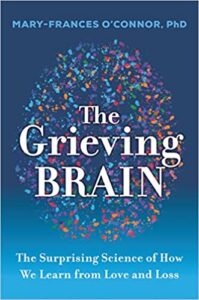
I came in, and my parents were divorced. She said, “I think you should call your dad.” I had this hesitancy and how she looked at me, and I said, “okay.” So I called my dad and said, “Mom thinks it’s time to come now.”
We all were in my brother’s room talking to him and listening to his favorite music. My dad, 15 minutes later, walked into the house, came up the stairs, entered the room, picked up my brother’s head and told him they loved him. Unfortunately, by the time he put my brother’s head down, my brother had passed away.
At the time, the word I would have used was insane, which is not a word I use. My mother’s connection to her children is nothing I’ve ever seen. That was almost to the minute and just so, so sure. That was like there’s something way beyond us, our attachments, and how we’re all connected.
I’ve known that. I can walk by and be walking funny; she knows something’s going on, so deeply connected. Then for myself, a few years later, I was the only one close to my dad near the end of his life because of distance. My older sister lived in Australia, and he was divorced for a second time, so I was close.
I had this literal, visceral feeling in my chest. So I started to get vocal about it and told a few people and my mom. I was just so sure that something was wrong. My dad had just sort of started to act a little odd. People said it’d be months before he was that depressed or anything serious would happen. So I was trying to talk about it with everyone.
It is almost ten years to this day. It was ten years on Saturday. The conversations, especially around men’s mental health, were not happening, luckily, as we have them today. I just had this feeling to the point that my mom had my grandfather over for dinner two days before my father died because I thought, “Okay, maybe it’s grandpa, but I’m sure I just know something’s about to happen.”
We were sitting and having dinner, and my mom was like, “Why?” I looked at her and said, “It’s not him.” I don’t know because I never got the official timing. But the next night, I was sleeping at a friend’s house. I woke up at 3 AM, which probably works out with the timing. I just gasped, and I just knew something had happened. My friend said, “Don’t worry. Go back to sleep.” The next morning, I found my father dead.
On a spiritual level, I inherited from my father mental health education.
I’ve talked about this before. It curdled in my chest, and I followed that feeling in that two-week course to my dad. That’s where it was leading. It scares me, the connection I had, because I never want to have that feeling again. It was so real, and it was so deeply connected.
Much like in Kevin’s story and what we were talking about earlier, I wish I was empathetically connected like my mom was to my dad’s suffering, no matter how much he was trying to shield it from me. But, I was aware that some of me knew something was not right, and I was absolutely right.
I’ve had my years of therapy of wanting to have rung the alarm bells sooner, but I was a 23-year-old trying to respect a grown man’s mental health and privacy. Ten years ago, it was a very different conversation. You’re not educated.
One thing I inherited from my father was mental health education, the responsibility around it, and the likelihood of me ending up in that same situation because he navigated it blind, not living in the world we live in now. So that was my inheritance on a spiritual level. You have to take care of yourself and go out into the world, figure out what serves you and doesn’t, and not stop until it’s the real thing for you.
That led you to create that mental health app, Tethr.
Yeah, that was a really big inspiring factor. Tethr was this magical thing I got to do for two years and be a part of this movement. My story got highlighted in that. I realized in that process my father wasn’t alone, especially statistically, right at his age and demographic. He was 50 at the time, and that’s one of the most at risk for suicide.
It was fascinating to realize how deeply connected we all are by just getting to speak, interview and connect with thousands of men worldwide willing to engage around mental health and brotherhood.
It was so fascinating to realize how deeply connected we all are by just getting in those two years to speak, interview and connect with thousands of men worldwide willing to show up and engage around mental health and brotherhood. So much of what I learned in that space lends itself to where I came to when I wrote the book in terms of how can I be a friend to others? How can I stay in the stretching space that every man can do?
I don’t want to be a doctor. I don’t want to be a coach. I don’t want to be a grief expert. I want to show what everyday men can do, how they can thrive and learn, and how they can experiment and get help. Because the second I crossed a bridge and became a doctor or a coach, I wasn’t in this kind of cool life experiment. I like to be in of stretching, like, what can an everyday man do? How much further can we stretch from what my dad thought was possible?
That was just such a cool experience to be a part of that, and then to sort of come off of that, and sort of have this download of exactly what I would want to offer somebody if I just found out they lost someone for that download to come through after 13 years. Everyone’s like, “Oh, you’ve read this book so quickly.” I’m like, “Well, it’s 13 years and two months.” So that download and that responsibility of what would I say?
It’s funny, whenever anybody calls me and says, “So and so has lost someone, will you talk to them?” Or “I’ve lost someone so close to me,” and they’re heartbroken, I really would freeze. Part of writing this book was out of that discomfort. That freeze eventually became this pull to be like, “Okay, if you’re uncomfortable with single-sentence condolences, sending flowers that will die, or joining the casserole keynote party, what are you comfortable with?”
I’d want to be with them for a year. But I also don’t want to sit in anyone’s grief for a year because I’ve been in the arena for 13 years. So how could I be gifted to other people and stay with them for a year and encourage them not to get through the loss but to get to know themselves again, with the loss? It’s the biggest thing.
Learn to live with yourself within the loss, learn what works for you, and be willing to meet yourself where you are now.
People tried to spend so much time focusing on how to live without someone. So much of it for me is learning to live with yourself within the loss, learning what works for you, and being willing to meet yourself where you’re actually at now and not start trying to return to this idea of when everything was perfect when you last felt right, or a time quite innocently when they were alive because that’s a version of you that would line up best with this not happening. I get that.
That’s kind of how the men’s mental health stuff infused the way I looked at that and learning that men learn shoulder to shoulder experientially from witnessing other people’s experience was very powerful for me because that’s how I learned, as other people who had been in it, that I wasn’t necessarily paying to talk to me, that we’re sharing their tools and sharing what worked for them.
I went into my corner, experimented, and went, “Okay, what’s my version of that? What serves me here? What am I tossing in one of my refinings?” So that was such a cool experience to bridge those together and birth this baby book.
You said it took two months, but then 13 years in the making to get to the two months. I learned recently that The Alchemist was written in 12 days, 150 million copies sold and it was written in 12 days.
It’s that rare weird thing. I don’t even want to say this because I don’t want to perpetuate it. But, after all, we did so much writing. I was writing my memoir, another project, and this book fell out of that. So I’m working with an editor and a coach on that.
I was in the practice of writing and refining. Writing has always been one of the ways that I deal with and honor everything I’m going through. I’ve heard about this experience a lot. When the time comes, the first draft is revised a lot. But it is this download, this clarity, and this connection.
When you asked earlier when I felt that connection, it was a lot like that. It was 37 hours. I use the metaphor of a baby being born. I’ve wanted to write this book for 13 years. I was in London, and my water just broke, and now it’s happening.
Writing has always been one of the ways that I deal with grief and honor everything I’m going through.
I just sat down, and there’s paper everywhere. It’s silly. It was like a movie, the paper and the computer out. I’m mapping it and moving things around and going, “Oh my gosh, this is what I would say to a friend. This is what I would offer.” It was like, why didn’t you do this earlier? It’s like, this is the moment. There was never a moment.
I like the metaphor of a baby being born because you can’t call it unless you schedule a C-section. You really can’t call that. You can’t look at a mother and say, “Well, why didn’t you do it on this day?” That’s not how it works. When it’s time, it’s time. It was very much that experience for me.
I’ve spoken to a few other authors with years of preparation and experience, but when the time comes, it’s like the dams break that way. I’ll happily admit, as a millennial, that it had a lot to do with the fact that the Wi-Fi was broken and I had no cell service. Nobody asked me on a date or to go drinking that night. It cracked me open a little bit to finally be so disconnected and have this thing right there.
The next week, I posted a joking video saying thank you to everybody who didn’t ask me on a date last Friday night because I finally gave birth. We have so many distractions. It’s difficult. Especially with grief, we want to do anything other than tap into that.
We have all these magical dopamine rush products available to us. Sometimes it’s okay to take the time. Mary Frances O’Connor, the neurologist who wrote The Grieving Brain, said, “Avoidance is a tool in your toolkit. Sometimes it serves you in the beginning through what is too difficult for you to handle.” It just knows when you’re moving to the next tool.” You’re not ready till you’re ready in some ways with this stuff.
All right. You know the Wi-Fi is not working, and cell service was all arranged for you.
It’s so funny because, yeah. For anyone listening, sometimes, when you’ve had a lot of death, there’s resistance to that idea because it feels like there’s a greater plan. So, I want to talk to whoever wrote this plan out because my brother and my dad aren’t here. But at the same time, I want to be a devil’s advocate with myself, which is my everyday life, as doing this back and forth myself, is saying it did feel very aligned. It did happen exactly when it was supposed to happen.
Everything happens for a reason. But being the reason everything still happens allows you to step into your trajectory.
Anyone who’s been through grief probably hates it as much as I did this. Everything happens for a reason. I like to flip that and say you can still be the reason everything happens and kind of tap back into your trajectory in your own life. Everything happens for the reason that feels more like what happened around you. But being the reason everything still happens allows you to step into your trajectory.
For me, that worked. So what I’m going for in the book is this idea of I’m not telling you anything. I’m getting you to experiment weekly with different ideas and figure out what works for you and what serves you. Whenever you say something like that, I realize I have reached a very spiritual point and maybe pulling back a little bit.
Every time you say something divine in that sense, I notice the discomfort in my body, and it’s like, oh, okay, that’s weird. So why are you resistant to that right now? What’s happening? To be honest, probably the time of the year that I mentioned that anniversary was. It’s a time when I’m re-updating the whole operating system.
I love the invitation always to revisit all these things because the first thing I tried to do during my grief and mental health challenges were look for finality and results. It’s an everyday conversation and not encouraging ruminating on end, but being willing to check in and go on each day with where you’re really at. Without those five senses, it sounds good.
Yeah. Even when the five senses go full steam, you still can have part of your consciousness in that subspace. I’m receiving stuff while we’re in the midst of the interview. I always have part of my listening or my consciousness tuned in to that.
For example, I wrote this down a while ago. I debated whether to say it in the episode or after we stopped the recording, but I’ll share it now. Your brother waited for your dad to arrive. That’s what I’m getting about that.
Instead of saying, “Everything happens for a reason,” say, “I can be the reason everything positive happens.” Invest in your life’s trajectory by figuring out the best way for you to process and heal. Share on XI love that, and I appreciate you sharing that. But, yeah, it’s odd. Sometimes things like that, it’s days later, where what you said clicks in a way. Do you know what I mean? It’s like I’ve got really good. I’d never throw anything away because the grief shield does come up.
They’re happy, and they’re gone. That’s the kind of what my whole brain is trying to close in on now. So let’s let that download. Some sort of digesting later or something that gets offered can make so much sense and bring peace or joy too, so I’m always open to hearing that.
Yeah. Do you get any communication from your loved ones who have passed?
I dream very, very vividly. You’d be very interested in speaking to him. I’ll connect you two. There’s a guy named Dr. Black at the University of British Columbia, I believe. His whole Ph.D., he’s been studying grief dreams. It’s a very interesting conversation because I dream so vividly. It’s like running three Netflix shows every night in a way that I need rest from my rest.
It’s all very obvious. On the other hand, some things felt like very clear messages and things that didn’t make sense. For instance, my friend who passed away in an accident, for someone who dreams the way I do, and my brother and my father are constantly in my dreams in different ways, but she would never be in any of my dreams, ever. It was so weird.
I had one very specific dream: I was driven to a white house on a hill. I got out, and it was a beautiful garden. She was standing there. I just walked up to her, hugged her, and it felt like it lasted forever, and then I woke up for someone who kind of thinks through their sleep. I went through one of the most horrific ordeals ever with this beautiful friend. You think there’d be so many other dreams, especially given just the PTSD of the situation. But that was the only dream I ever had.
For me, sometimes, things like that, whether it was leaning into me, believing, doing more, or just knowing that I get the messages that I need at the exact right time, it was just so peaceful and so beautiful. I’ve had things like that. It’s funny because I push it away, not because I don’t believe in any of it, but because I’ve always felt deeply connected and don’t want to engage. That’s where I’ve always come from. That’s something that’s come up a lot in my life, and feeling like there is some sort of deeper connection and just going, yeah, I don’t want to hear anything.
I believe that with people you’re close to, the connection certainly does not die at death.
It’s funny because when my dad passed, like I said, with PTSD, it was hard to decipher what was a deep connection and a flashback. It had to be very specific, saying, if this is real, and I am feeling connected to you, that’s fine, but you need to come in the day. I’m terrified to have it. I don’t want you to go now.
I would have these conversations out loud. Again, whether or not I truly believed it was happening, the messaging was coming through. My soul and body were working through the grief process with the help of those messages.
It’s also interesting because, as I said, grief can be so different and complex. For me, in three different ways, this makes no sense to anybody else, but I have very different ideas of where each of them is. It doesn’t make sense even to me, but it’s just what I viscerally know and feel.
I keep those details private. Sometimes it doesn’t even line up with a central belief system. It’s what you know, feel, and energetically can tap into. I do believe that with people you’re close to, the connection certainly does not die at death. I still feel very connected.
Yeah. The fact that you woke up right when you were having this long hug, and it felt so real to you, was not a coincidence. What I understand about loved ones coming in dreams or important messages coming in dreams, either way, the importance of having that person, that soul, the angel, or whoever, is communicating with you to wake you up till you remember the dream. Otherwise, you won’t.
Some people have a dream journal by their bed and move their bodies as little as possible. Especially don’t sit up, and don’t move your neck around that much. Just move the least amount possible to keep that dream, the details, because they all evaporate fast and start scribbling down all the details you can.
That was for you, a gift from that dream. If you had it, let’s say, 30 minutes earlier and slept through that dream an additional 30 minutes, you probably wouldn’t have remembered it.
Yeah, I know. I can attest to that. I have a dream all night, every night, and I dream very little. I remember very little. I said I dream all night every night as I said, but I remember very little. So it is very special to me how vividly, for instance, I remembered that specific memory and obviously how much it meant to me.
Yeah. I lost a cat in 2019, which is very dear to me. She does visit me. She’s an amazing soul. But this one experience was just so vivid, real, and unlike other dreams where we were reunited. I felt so happy, elated, and just grateful. She let me pet her tummy when she would never let me do it when she was in physical form. I felt this beauty at the full reunion, which was real.
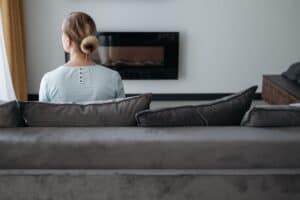
That was not a dream. It was not synapses firing in my brain. That was an experience that was real in the astral plane. I could remember it because it happened shortly before I woke up.
There was another important piece to that that needed to happen. It had nothing to do with the reunion. It’s more of a warning of some interference, but that was incredible. These sorts of things are waiting for us. Often, all we have to do is ask. Please come to me in a dream, and wake me up, so I remember it.
I love that. The messaging is always there for me. It is something that, through my grief processes and through, my go-to was to shut down. So for anyone listening to this and who may be earlier in a grief process, what we’re talking about as well, is something years and years later that I could open myself up to, feel more deeply connected to, and trust that the messaging was there.
I’m at a place in my life, and I talked about this at the very end of the book, where I can accept that I cannot change what happened and still realize some of the true benefits of what I’ve experienced and how that makes me a full feeling, fully flawed, an empathetic person in the life that I continue to live because I’m still here.
That can take years, and years, and years, but it is such a beautiful thing when you can sort of be in both worlds and be open to two things like that, the messaging and just feeling deeply connected to something that may have made no sense at all to you a few years earlier. So I’d be raising my hand in that poll of doing things and saying things that I never thought I would and then, on my journey, finding these different ways to be connected.
We’re beautifully connected to everything around us. This means we can send spiritual messages when we’re distressed, and answers will appear. Share on XYeah, well said. If our listeners want to go through this grief or set of processes, they should pick up the book First Year of Grief Club: A Gift From A Friend Who Gets It. Any other resources or recommendations that you would have for them if they wanted something more than just reading the book?
Absolutely. I do want to talk about the book, too. It’s called the First Year of Grief Club. I made it something you could give to somebody right away as a gift when they experience loss, but it can also be the first year you choose to experiment with your grief and get to know yourself. It doesn’t have to be in linear time. If you’re feeling ready to honor a grief you’ve been through, it can be from that day into the first year. That’s something that I get written about a lot, so I want to clarify.
Then mygriefclub.com is being built as we speak, more and more. I’ve been working and been in pre-production myself on a limited podcast series that kind of does a deeper dive into each of the experiments I offer with an expert because, again, I’m just the friend who gets it, so I wanted to curate a deeper dive consciously. That’s in the works right now. It brought about 24 episodes recorded already, and we’re figuring it all out. As you know, that’s a fun process. I’ll give you the show notes, but @addisonbrasil on Instagram and the usual places.
Awesome. Addison, thank you so much. What a gift you’re giving to the world, to humanity, of sharing with authenticity, vulnerability, and candor what you’ve experienced so that others can heal and grow. It’s amazing. My gratitude, and I’m sure many other people’s gratitude to you for that, so thank you.
Thank you so much.
All right, listener, if you can think of someone in your life who could benefit from you, get them the book. If you need it yourself, get the book. We’ll catch you in the next episode. I’m your host, Stephan Spencer, signing off.
Important Links
Connect with Addison Brasil
Books
Businesses/Organizations
People
Previous Get Yourself Optimized Episodes
YouTube Videos

